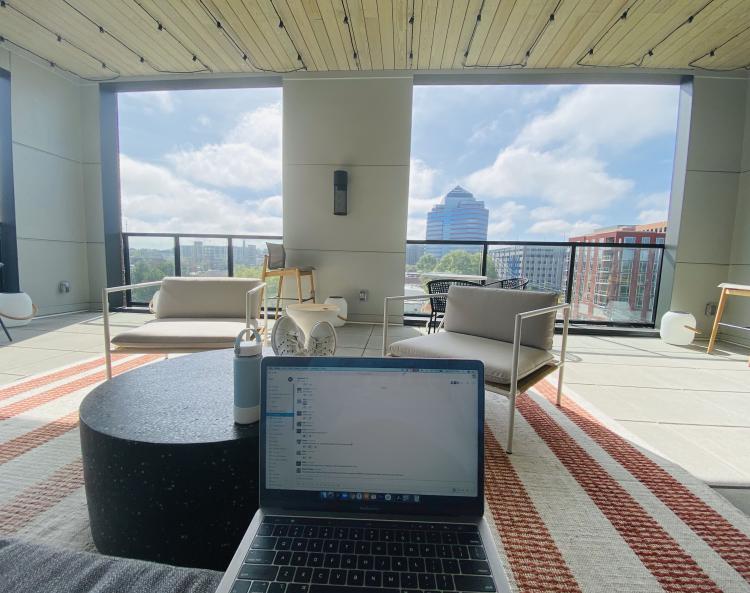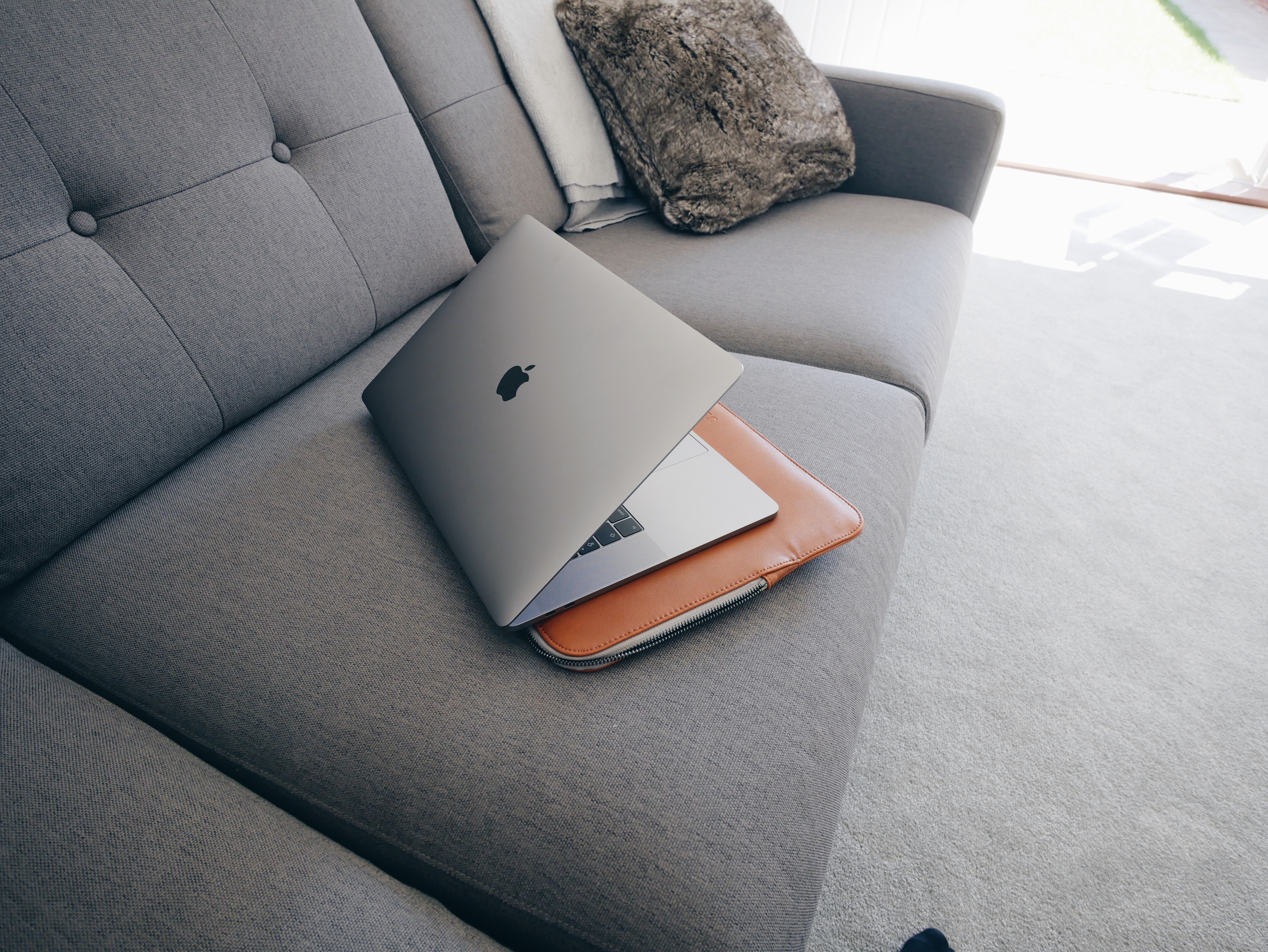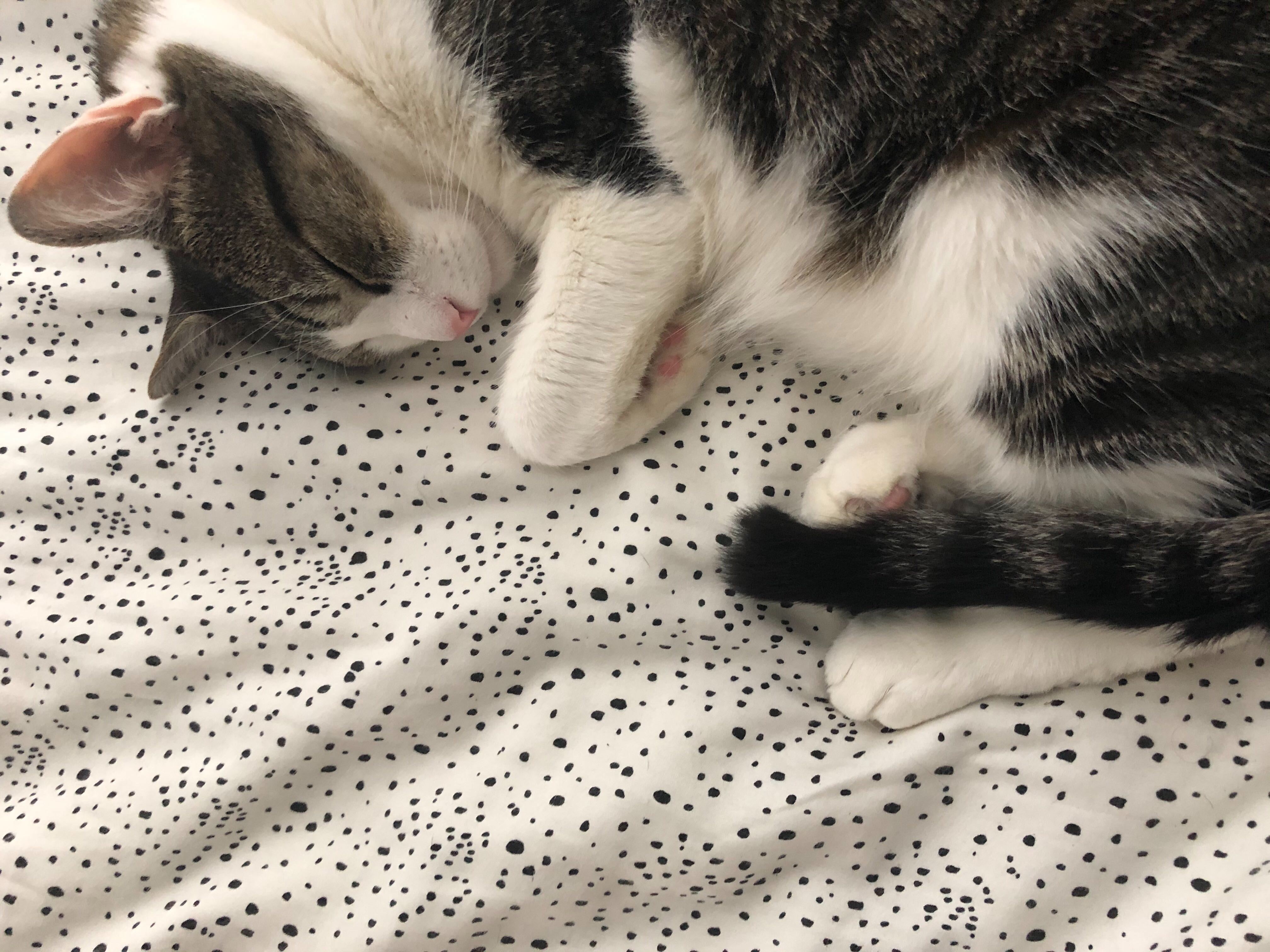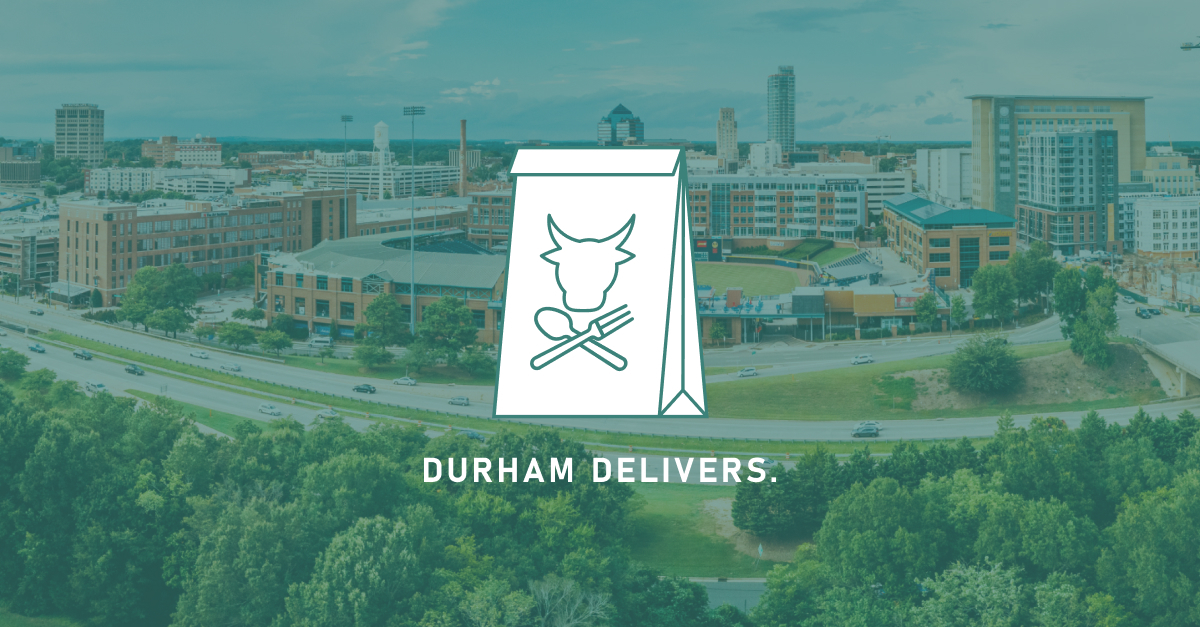Hi there! Allow me to introduce myself, my name is Jenna and I am the newest UI/UX Designer at Savas Labs. I am a 2020 graduate from the University of Kansas, which means that I left my midwest home and moved my life to the east coast, knowing no one — all during a pandemic! I’m writing to share the raw truth of searching and starting a job 2020 style, or at least my experience starting out my professional career during “uncertain times.”
Well hello!
Job search
Here’s what I’ve learned from the 2020 job search…
Use Clutch.co, not just Glassdoor and Indeed
Clutch was my go-to site when it came to searching for companies that I wasn’t familiar with. Clutch is a super tool when looking for a job because it’ll give you “top companies/agencies in…” With that, you can filter your search results to fit your job title and any location you may be considering moving to. Clutch will show you ratings and reviews from real customers and help you get a sense of company culture and how they work with clients. Unlike Glassdoor and Indeed, I felt like these reviews were more genuine and accurate. From there, I was able to visit a short list of firms and see if they had any openings.
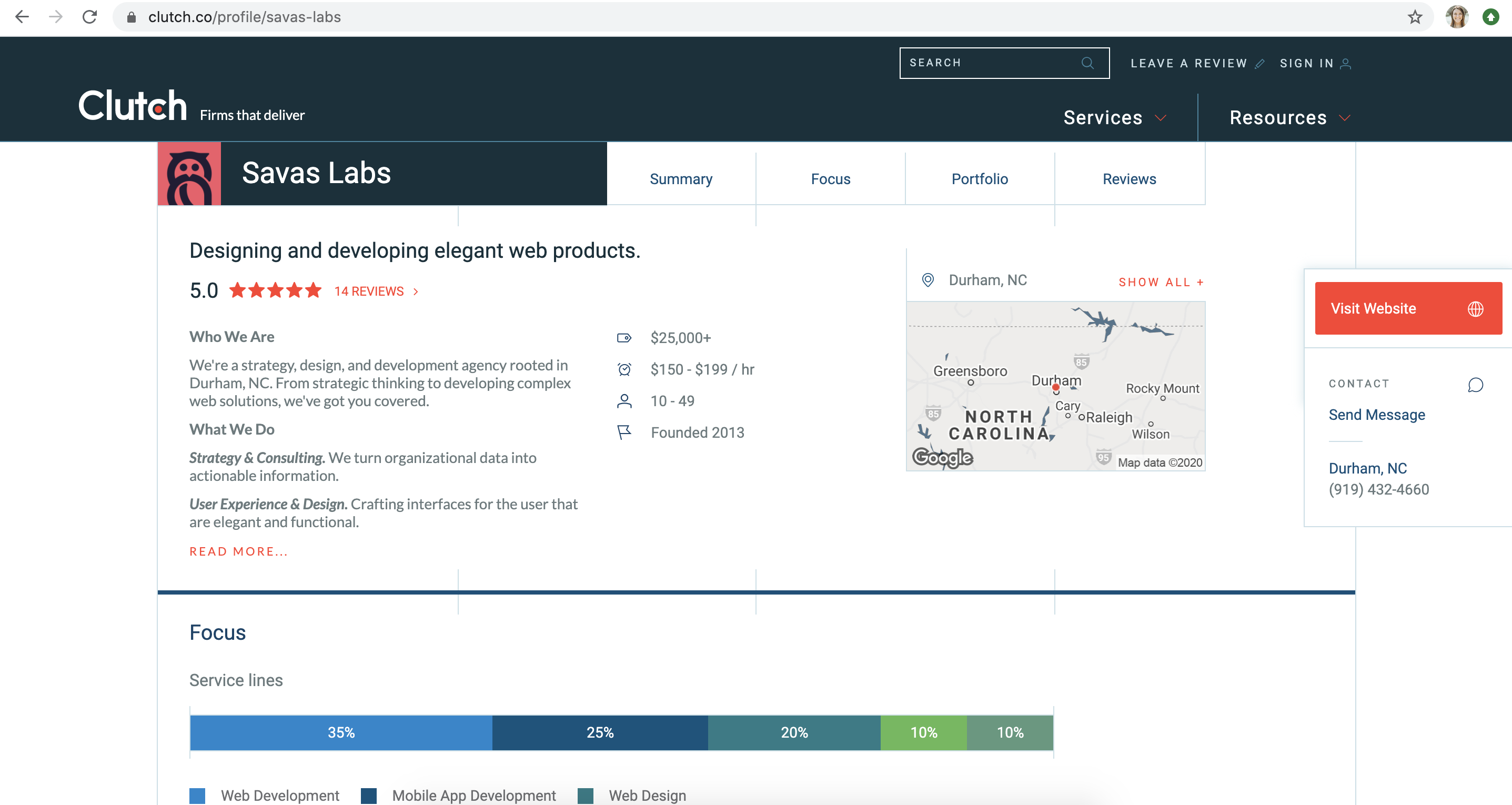
Know that you will be ghosted, and that’s not a bad thing.
I was on my spring break trip in early March when everything started to shut down. School was moving to remote learning, the airport was in total chaos, shops and restaurants were closing down, and to be honest, at the time, I didn't see this impacting my future. It wasn’t until one company (that I really wanted to work for) told me that they were going to have to put a pause on moving forward with me that it really hit home. Heartbreaking. As days went by and the pandemic's reality sank in, I started to get one email after the next saying that the applications that I had submitted weren't going to be considered until after the pandemic.
Be patient and flexible
With Covid job searching, you have to be at peace with the fact that companies are still trying to figure things out. Some may be trying to fill a role quickly given a specific project, or others might be interested in hiring but may need some extra time in their now remote hiring process.
When I got my first email from Savas, asking to schedule an interview, the email included, “Given the state of the world, we're taking a bit of a slower approach to hiring for this role…” which is totally understandable. When companies understand the position you, the job seeker, are in and are transparent with you, it’s a good sign that they are willing to work with you, so try and be flexible with them as well.

Use your network
You can trust those you know, and I was all for using my network in my favor with no shame. Even though I didn’t land a job because of my connections, others in my network gave me pointers on my resume, portfolio, and where the next UI/UX hot spot is (the Research Triangle).
Trust your gut
During my job search after COVID-19 sank in, I actually got a job offer! I was a little skeptical about it because the interview process was a bit rushed. I didn’t completely feel comfortable with those who interviewed me, and I was given only four hours to accept the offer. My gut and brain were at a battle of “this doesn’t feel right” vs. “what if you don’t get another offer during the pandemic?” True, it was a major concern that I might not get another offer in a while, but I wouldn’t want to regret my decision and potentially miss out on other opportunities that could be a better fit. So I met in the middle with myself and asked to sleep on the offer. With no response, I thought that was a “sure thing, Jenna”, but I came to find out that the rushed deadline was actually “a test” in which I failed. I am forever grateful I did not join a company that only gives their future employees four hours to accept the job — it’s not one I want to work for!
The moral of the story: don’t disregard red flags a company may give you just because you may worry you won’t find another opportunity. There are companies that can successfully navigate the hiring process during the pandemic.
Onboarding and working remotely
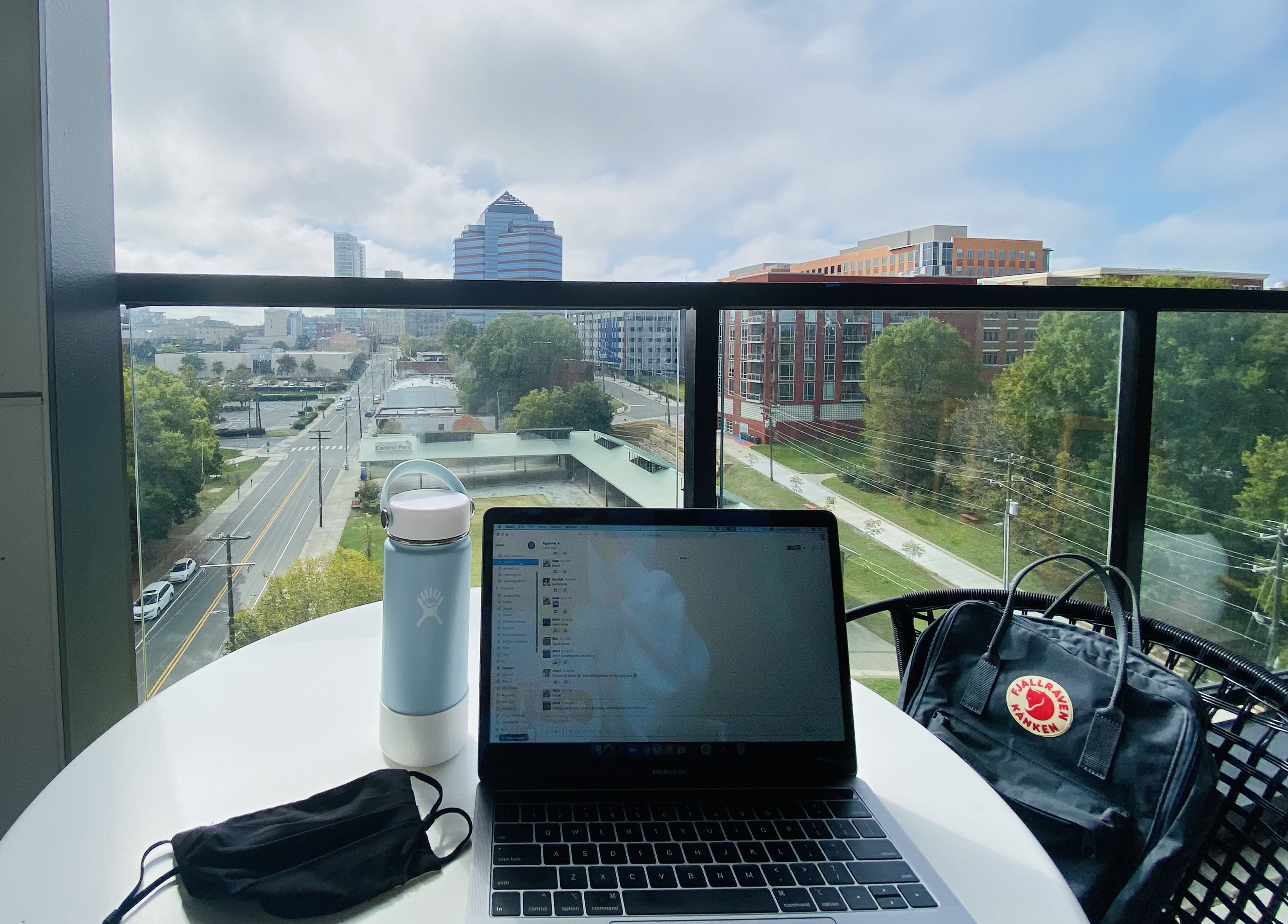
I’ve been working here for almost five months at Savas, and I feel I have been uniquely challenged while I was onboarding remotely, yet fully supported by the whole team. Starting an entirely new routine from full-time student to full-time employee is a big enough adjustment, but being fully remote was quite challenging. I was curious to see how the onboarding process at Savas would go remotely; I had a taste of what remote work and collaboration looked but only from a student’s point of view. I was worried I wouldn't catch onto the office vibe, get to know my coworkers, or rise to the standards I know I am capable of.
These are some points I’ve collected about the remote culture…
We are more than capable.
I was nervous about starting a full-time job remotely. I felt like I was getting a slow start and would have to play catch up for the lack of in-person face time with my coworkers During the onboarding process at Savas I experienced the opportunity to advocate for myself to learn more, do more, and fail more — more so than I may have been comfortable in the office. A remote start ended up being a better scenario for me to get a push that I may not have had in person. I couldn’t walk over to someone’s desk and ask for help, and while I could reach out on Slack, I relished the opportunity to figure out problems on my own instead of having others “show me” how to do something, which actually gave me more of a head start. We all are more than capable of working online, but is it ideal? It is probably not for all of us, but instead of focusing on where it might be lacking, we can find opportunities that make this work to our advantage.
Remote work is the future
A year ago, I viewed remote work as something people do when they are unable to relocate or just prefer it. Now, we are all forced to work from home for longer than we hoped, but I think this was an unavoidable wake-up call for many companies to see that they can put more trust in their employees to do great work without going into the office.
As more companies are gearing their cultures to allow their employees to come into the office or stay at home daily, I have to say: I enjoy this freedom. I can work from my apartment, a coffee shop, in the office for half the day, and even in another state. The flexibility and trust that Savas has in me and my teammates during this uncertain time further motivates me to do better work, in a way. It's almost like a “thank you” for trusting me with this flexibility.
Get creative
One thing that took me a long time was getting creative in fulfilling the human interaction I'm missing from going to work every day. I am an introvert, and I am more than okay getting out of bed to move 4 feet to work at my desk. But after doing that for several days straight, it gets somewhat boring, monotonous, and maddening. Once I moved to Durham, I started to make it a goal to go into the office 1–2 times a week. I’m blessed that I have a 10-minute commute by foot to go into the office, passing yummy breakfast and lunch spots along the way. This really has been a great way to boost up my remote work routine.
Our design team is small enough to be able to work together in our office while adhering to COVID-19 safety protocols. Every other week, we go into the office to work in person. Sometimes, we collaborate and bounce ideas off each other, and sometimes, we treat it as just another day in the office in 2019. Being able to find moments to spice up your routine of living and working in the same space really helps with the remote working experience
RELATED READ
How to Work Remotely (and Still Be Productive)Ready for anything
The process of remotely finishing college, applying for, onboarding, and starting my first job has been such a unique and exciting experience. It taught and still is teaching me how to roll with the punches, jazz up my stay-at-home routine, get to know coworkers via Slack while making the most of where I am.

